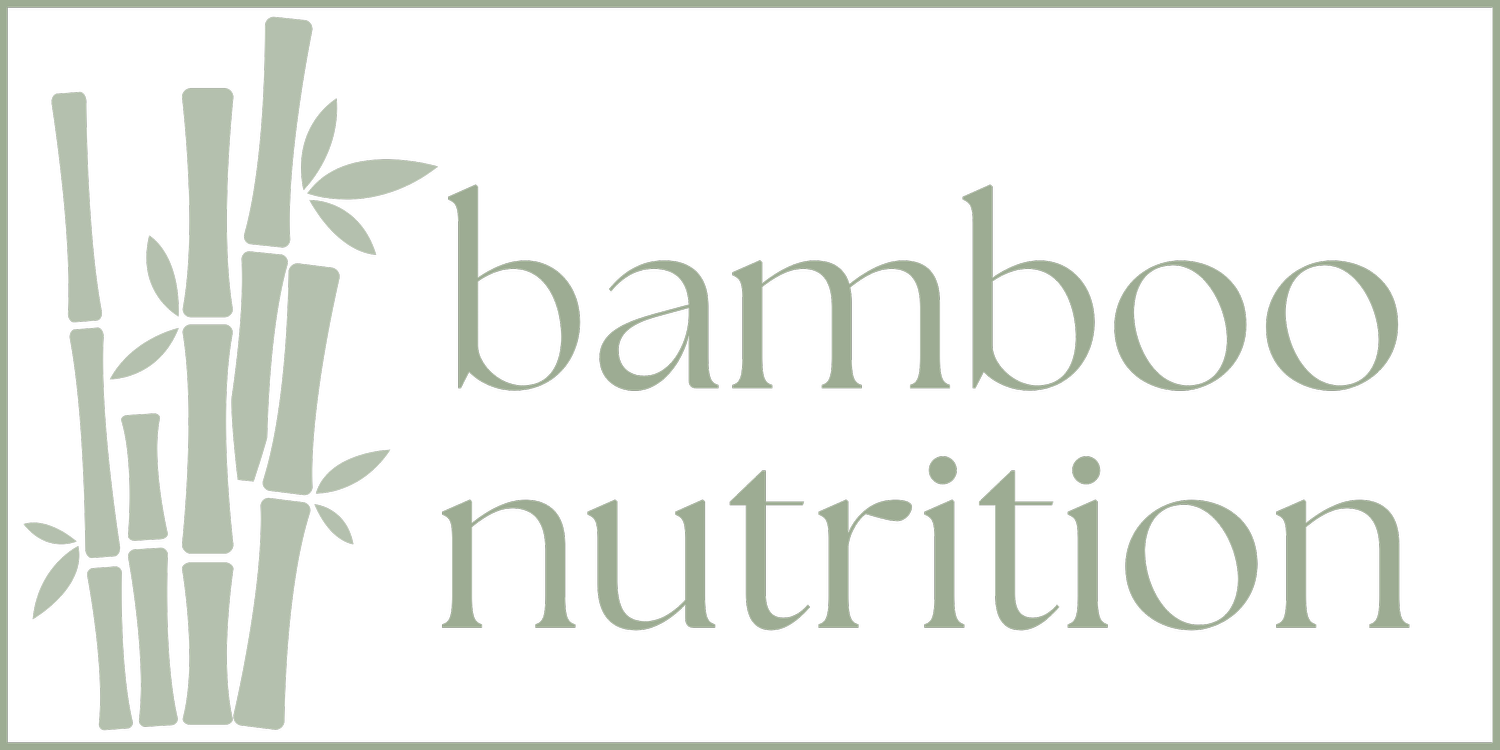This blog was written by Anna Terry, Dietetic Student.
At Bamboo Nutrition, we have dietitians and therapists who are specialized in various disease states, chronic illness, mental health diagnoses and general well-being. Our providers all are trained in identifying disordered eating and things that are harmful to your relationship with food and body image. We prioritize improving those issues as they often feed into other chronic pain spaces- self-loathing, dieting, health issues, etc.
If you’re interested in working with one of our providers, reach out to us today and we would love to talk to you about what we can do for you and which provider may be the best fit!
“You are what you eat”. Whether it be through school, your parents, social media, or in a magazine, I'm sure you have heard this phrase at least once in your life. I know that I have.
Depending on who you are, this simple phrase can mean a multitude of things.
Growing up as a teenage girl, I can vividly remember being taught that the foods I eat directly impact my body. While this is true, I did not understand that many people were not referring to the health of my body, but rather the way it was being perceived.
Creating morality around food from a young age can dictate how you view yourself.
Being a 12 year old girl, vaguely understanding the idea of a “calorie” but truly believing that I needed to limit them, was a reaction to hearing this quote. Rather than enjoying pizza with my basketball team after a win, or picking out what type of candy I wanted at the movie theater with my friends, I remember focusing on how consuming these foods meant that I was inherently “bad”.
Bad, good, clean, & toxic are all terms that I have recently heard regarding all different types of food. All that these labels do is reinforce a moral hierarchy.
Food has no inherent moral value.
You can cheat on a test, but saying that you are “cheating” on your diet implies that you have done something negative.
It is incredibly important to be aware of this mindset as we approach the holiday season. It is very easy to spend your time focusing on trying to be “good” during the holiday season, when there is genuinely no such thing.
The next time you may have these thoughts I challenge you to ask yourself, why? It may seem simple but food is not created good or bad. There is no denying that certain foods contain higher nutrient content than others, but all food provides value.
One of my favorite foods of all time is banana bread, and during Thanksgiving my grandmother makes the most amazing banana bread in the entire world.
This recipe has been passed down in my family for years, and baking it with her as a young girl was a way for us to connect over something that we both love. I know that eating that banana bread will provide me with energy and amazing memories with my family members that I would miss out on if I avoided it all together.
It is unfortunately common to categorize food due to societal standards, however, it is important to be aware of our internal dialogue when thinking about food:
“I shouldn't eat the banana bread, it's not healthy”
“I can just eat a banana instead”
“I'm still not satisfied, maybe I'll also eat a handful of nuts! Those are healthy”
“Ugh I’m still thinking about that banana bread”
“Okay! But only 1 bite”
“Oh no, I've eaten 5 slices… It's okay, I will just do a bunch of cardio tomorrow.”
Sound familiar? Just like so many people, I've been there too. This is an endless cycle that many struggle with, especially during the holiday season when we are surrounded with so many foods that many people deem as unhealthy.
A banana and a handful of nuts is a great snack that provides carbohydrates for energy and dietary fats for brain function and satiety. However, this does not make the banana bread a “bad” choice.
During the holidays I want to be able to enjoy the foods that I love without thinking about if what I am doing is good or bad. Eating one slice of banana bread in the first place would have had me satisfied without having to deal with the future mental battle.
You do not earn your food by doing excess activity. You earn your food by having a body.
Restricting yourself from your favorite foods will only dig you into a deeper hole until the cycle repeats itself all over again.
Societal and cultural values that assign these moral judgments around certain foods try to tell us that who we are is dependent on what we eat.
Food is there to fuel us nutritionally.
Food is a means for us to feel our best and perform our best.
Food is also there as a means of community, to nourish relationships, and create memories with the people we love.
Holidays will come and go and so will the food, but the moments we create are far more precious than the food that we eat during these times.
“You are what you eat”. This phrase has a different meaning to me than when I first heard it, and I have come to terms with a much broader significance.
I am strong and fueled.
I am satiated and nourished.
I respect my body to provide it with the nutrients and kindness it deserves.
And I really love banana bread.


